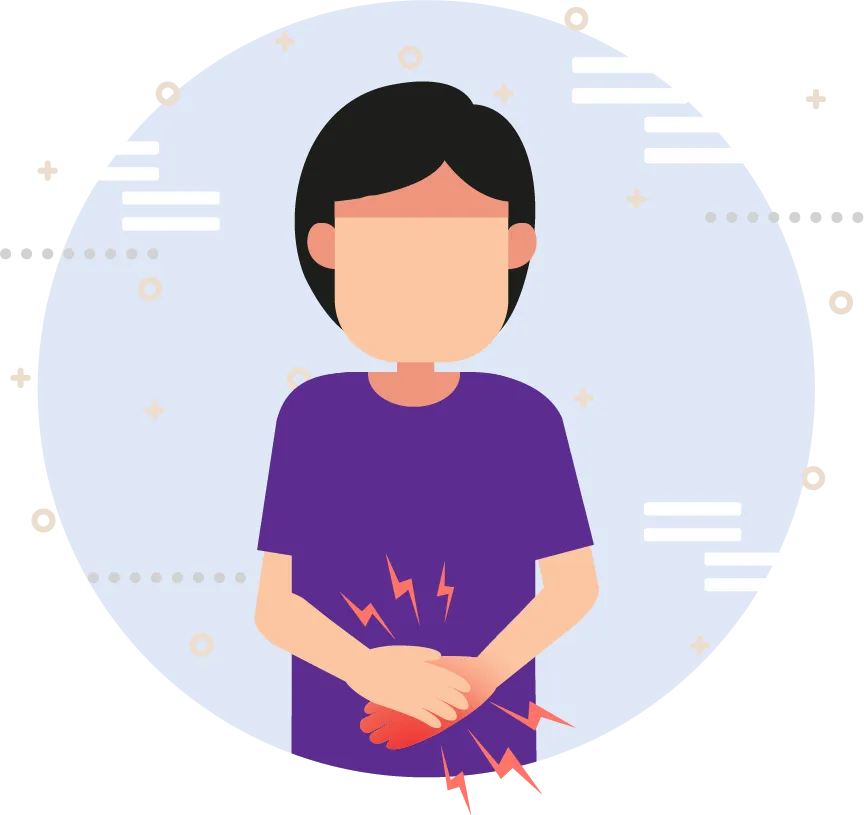Ayurveda | 5 min read
Carpal Tunnel Syndrome: Symptoms, Causes, and Treatment
Medically reviewed by
Table of Content
Key Takeaways
- Any medical condition that can lead to pressure on the median nerve causes carpal tunnel syndrome.
- With the help of medical history, physical examination, and few tests your doctor can diagnose Carpal tunnel syndrome.
- There is conservative (non-surgical) treatment and the other treatment is via surgery.
Have you ever suffered from tingling and numbness in fingers? Well, it might be a one-time event for some, but for a few, it might be a constant annoying feeling making it difficult to perform day-to-day activities. The condition is called ‘carpal tunnel syndrome.
What is Carpal Tunnel?
To understand the syndrome, one should first know what carpal tunnel is. On the palm side of your wrist, lies a narrow passageway or tunnel which is surrounded by bones and ligaments. The median nerve that supplies the hand and fingers (except the little finger) passes through this tunnel.
What is Carpal tunnel syndrome?
When this median nerve gets compressed due to various reasons (which we shall see later in this article) or the pressure increases on the same, it leads to numbness and tingling, often accompanied with pain. It can also lead to weakness of the hand. This medical condition is called as Carpal tunnel syndrome. It can be unilateral or bilateral. The prevalence is more common in women than men and increases with age.
What are the symptoms of Carpal tunnel syndrome?
- Numbness: It is the loss of sensation or feeling; often described as hands ‘falling asleep’.
- Tingling: Often described as pins and needles form of sensation
- Pain: It can be maximum at night leading to disturbance in sleep.

- Weakness: This occurs in the muscles of hands and wrists leading to reduced grip strength. This can cause difficulty in holding things.
What are the causes of Carpal tunnel syndrome?
Any medical condition that can lead to pressure on the median nerve causes carpal tunnel syndrome. The most common reason is swelling in the wrist which can be due to inflammation caused by various reasons. Some common reasons are as following:
- Swelling and fluid retention due to pregnancy or menopause
- Hypertension or high blood pressure
- An occupational hazard such as typing or working with vibrating tools leads to repetitive wrist movements.
- Thyroid dysfunction
- Obesity
- Diabetes
- Wrist fracture
- Rheumatoid arthritis
- Deformity of the wrist
- Tumor/lesion in the carpal tunnel
How is the diagnosis of Carpal tunnel syndrome done?
With the help of medical history, physical examination, and few tests your doctor can diagnose Carpal tunnel syndrome.

Tinel’s test is a test where the examiner taps on the median nerve at the wrist and if it leads to symptoms of tingling sensation or numbness it confirms CTS or Carpal tunnel syndrome.
Similarly, Phalen’s test is done with the elbow flexed and relaxing on a table, allowing the maximum flexion of the wrist on edge. If this position leads to symptoms of numbness or tingling it confirms CTS or Carpal tunnel syndrome.
Your doctor can also prescribe you with Nerve conduction study to understand how well the median nerve is functioning. An Electromyography study is done to check the electrical activity to find out if there is damage to the nerve.
X-rays might be done to rule out a fracture or deformity or Rheumatoid Arthritis.
How can Carpal tunnel syndrome be treated?
There is conservative (non-surgical) treatment and the other is surgical.
Non-surgical treatment
Depending upon the severity and the cause of the syndrome the treatment can vary. It is best to start as early as possible.
- If your job/work involves too many repetitive wrist movements, you can take breaks often or find some alternatives to switch works for example working with vibrating tools or typing.
- Manage to swell with contrast baths.
- Reduce inflammation with cold packs.
- Immobilizing the wrist with splints at night can be beneficial in maintaining the position of the wrist to prevent pain.
- Medications like anti-inflammatory drugs can help relieve inflammation and pain.
- Physiotherapy may involve Ultrasound therapy that can help reduce the swelling and exercises to reduce the pressure on the nerve.
- Try keeping wrists and hands warm, as being cold can worsen the condition.
- Treatment of underlying conditions that leads to Carpal tunnel syndrome can be helpful.
- Keep a correct posture of hands and wrists while working and sleeping may avoid worsening the condition.
- Rest can help ease the pain and symptoms.
Surgical treatment
Surgery can be advised if the condition is long-term and doesn’t resolve with conservative management. It involves reducing the pressure on the median nerve by cutting the ligament that roofs the carpal tunnel called the transverse carpal ligament.
It is best to start the conservative treatment as early as possible to get good results. Neglection can lead to chronic conditions leaving no other option than surgery. Although the rate of success with the surgery is as high as 90% if the diagnosis is proper; it can have chances of complications. Alternative therapy such as Physiotherapy or yoga can be beneficial, and one should be regular with it to see good results.
Thankfully, you don’t need to step out of your home to visit a doctor when you have the best healthcare platform provided by Bajaj Finserv Health. Offering e-consultations with doctors across India, this platform also helps you take medicines on time with reminders and even track your symptoms and health! An all-in-one personalised health manager, Bajaj Finserv Health allows you to give your health the attention it deserves and puts you in touch with specialists in moments!
References
Disclaimer
Please note that this article is solely meant for informational purposes and Bajaj Finserv Health Limited (“BFHL”) does not shoulder any responsibility of the views/advice/information expressed/given by the writer/reviewer/originator. This article should not be considered as a substitute for any medical advice, diagnosis or treatment. Always consult with your trusted physician/qualified healthcare professional to evaluate your medical condition. The above article has been reviewed by a qualified doctor and BFHL is not responsible for any damages for any information or services provided by any third party.



